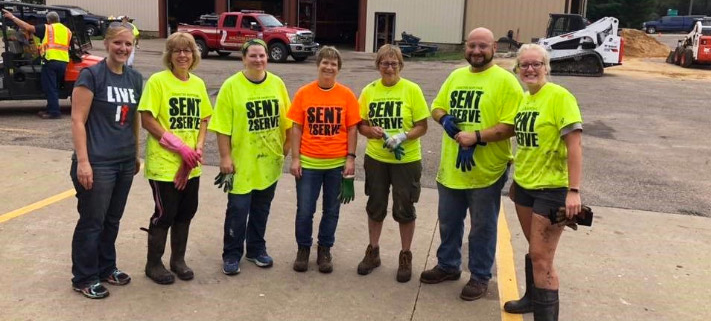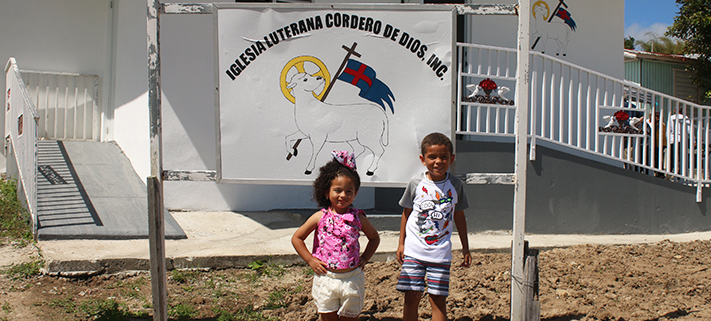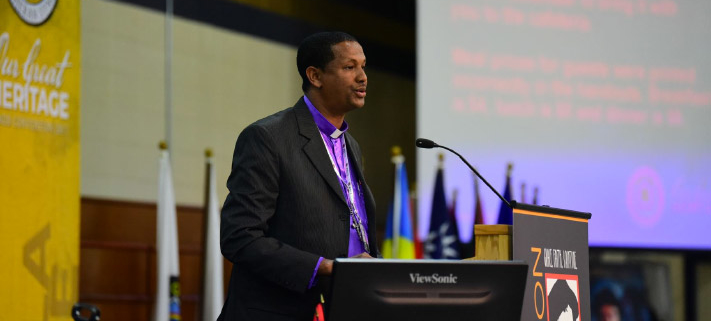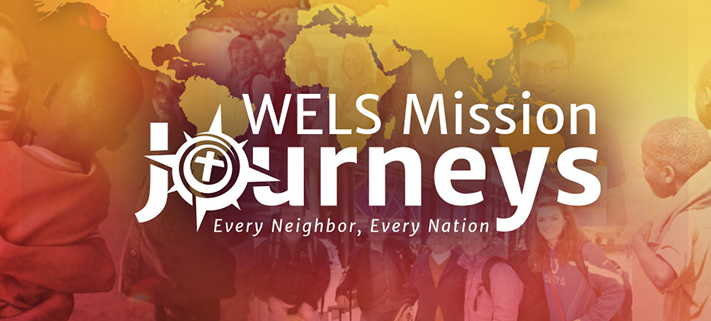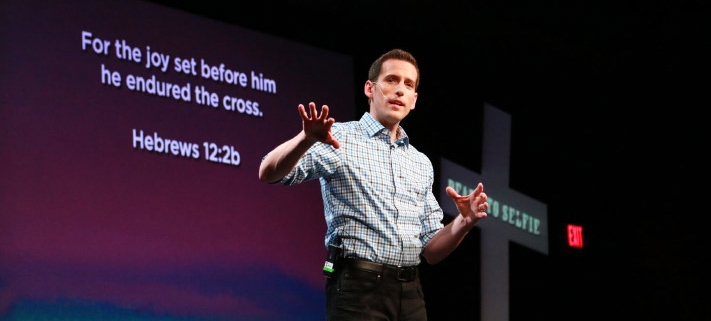Walk by the Spirit : Part 2
In spite of the First Commandment, idolatry still persists in our world.
John A. Braun
Idolatry? Today? Yes! And in familiar and unfamiliar forms. Paul walked the streets of Athens and noted the statues of idols almost everywhere. When he spoke to the Athenians, he said, “I see that in every way you are very religious” (Acts 17:22). He had passed altars dedicated to Zeus, Athena, and a host of others, including “TO AN UNKNOWN GOD.” The ancient world was full of gods and knew little of the God of grace, peace, and joy.
Acts of the flesh: Idolatry and witchcraft
Has anything really changed? Gods abound in many cultures. For many, demons and witches populate their everyday life so that they need to call a shaman, witch doctor, or some other priest to exorcise the demons from their homes and lives. Even without these obvious illustrations of idolatry, imitations of the true God abound. Many like to think that all gods or all theologies lead to the same place and have the same goals, but just a little research shows that to be only wishful thinking to justify rejecting the true God.
Paul lists idolatry and witchcraft as acts of the flesh. Humans create gods because of the natural knowledge of God embedded within their hearts. The gods they create are talismans to soothe human worries and fears or to bring good fortune. They believe their imaginary gods will guide them through the unknown and help them journey through death. Such gods all require obedience or rituals to earn something. Perhaps it is easy for us to see them as acts of the flesh flowing from superstition and fear.
We may easily think we have kept the First Commandment, “You shall have no other gods.” These gods or idols don’t interrupt our Christian way too often. We may encounter them in Wiccans, those who worship Satan, and others, but they are mostly far away from our Christian way of life.
Yet see how Luther defines god: “Now, I say that whatever you set your heart on and put your trust in is truly your god” (Large Catechism I:3). With that definition the acts of the flesh come into focus, and we realize that the temptations to adopt a different god cross our path frequently.
Jesus warned us about one of them, “No one can serve two masters. . . . You cannot serve both God and money” (Matthew 6:24). Too many people in our world today set their heart on money and put their trust in wealth. Jesus warned how difficult it is for a rich person to enter the kingdom of heaven (Matthew 19:24). If our focus is on what we possess and we have no time for the God who sent Jesus to save us, we have created an idol and yielded to the temptations of the flesh.
But it’s not just money. It is anything that we choose that eventually becomes more important than our loving God—pleasure, free time, friends, sleep, career, sports, even family. God gives us all these things to use and enjoy—money included—as long as they do not replace God and remove him from our lives
Our sinful flesh has an arrogant pride that resists the true God. Our natural tendency is a desire to control our lives without interference or direction even from God himself. That sinful flesh wants to elevate our thoughts and ideas above God’s. How often that tendency crosses our paths. When God tells us one thing in his Word, our sinful flesh can find all kinds of explanations or opinions more appealing than what God wants. Sometimes those thoughts even make more sense to our way of thinking. But that’s our way of thinking, not God’s. When we abandon what God reveals in the Scriptures, we make gods of ourselves. When we respect the opinions of others instead of God’s Word, we elevate their ideas above God.
Why the warning? Jesus reminds us that everything in this world is temporary. “Do not store up for yourselves treasures on earth, where moths and vermin destroy, and where thieves break in and steal” (Matthew 6:19). Building lives on the disappearing promises of this world—even when they are attractive and alluring—is like building our house on sand (Matthew 7:24-27). If we abandon God and choose the idols we create for ourselves, we do not heed the warning of the parable of the rich man and Lazarus (Luke 16:19-31).
Fruit of the spirit: Joy and peace
When Jesus warned about the treasures we value on earth, he took one more step and said, “But store up for yourselves treasures in heaven, where moths and vermin do not destroy, and where thieves do not break in and steal” (Matthew 6:20). The treasures Jesus spoke about were those that he himself gave. Paul identifies two of them as fruit of the Spirit—joy and peace. They are gifts to us by the grace of God through Jesus.
Paul reminded the Roman Christians of the peace we have, “Since we have been justified through faith, we have peace with God through our Lord Jesus Christ, through whom we have gained access by faith into this grace in which we now stand” (Romans 5:1,2). When we see our God on Mount Sinai in thunder and lightening, he strikes fear into our hearts. Demanding perfect obedience, we fail and deserve punishment. But the obedience we could not give him, he provides freely for us. Jesus suffered the fierce punishment for the sins of all humanity and then rose again to provide victory over death. We are justified—declared acquitted of our sins—and have peace with God. In Jesus, he is not angry with us.
That peace with God because of Jesus fills us with joy. We rejoice because we have treasures in heaven waiting for us. Jesus has prepared a place for us and reminds us, “I am the way and the truth and the life. No one comes to the Father except through me” (John 14:6). As Christians we are on the way to heaven and choose not to be distracted from that goal.
With all this in mind, it is important to remember that any concept of God that excludes Jesus or minimizes what he has done is only the vain imagination of the human mind and an idol. Sadly, many live devoted to such gods and spread their notions aggressively. On our journey through life as Christians, we encounter them often. At times their concepts appeal to our sinful human nature. Many follow that path, as Jesus reminds us (Matthew 7:13).
But Christians are different and follow a different way. The Spirit has changed us so we understand that without Jesus we lose the peace and joy he provided. Only Jesus has the words of eternal life (John 6:58), so we turn to him to reap the fruit of the Spirit.
“May the God of hope fill you with all joy and peace as you trust in him” (Romans 15:13).
John Braun is executive editor of Forward in Christ magazine.
This is the second article in a six-part series on acts of the flesh and fruits of the Spirit.
SUBMIT YOUR STORY
Do you have a manuscript, idea, or story from your own life you’d like to share for use in Forward in Christ or on wels.net? Use our online form to share it to our editorial office for consideration.
SUBSCRIBE TO FORWARD IN CHRIST
Get inspirational stories, spiritual help, and synod news from Forward in Christ every month. Print and digital subscriptions are available from Northwestern Publishing House.
Author: John A. Braun
Volume 106, Number 6
Issue: June 2019
Copyrighted by WELS Forward in Christ © 2021
Forward in Christ grants permission for any original article (not a reprint) to be printed for use in a WELS church, school, or organization, provided that it is distributed free and indicate Forward in Christ as the source. Images may not be reproduced except in the context of its article. Contact us





